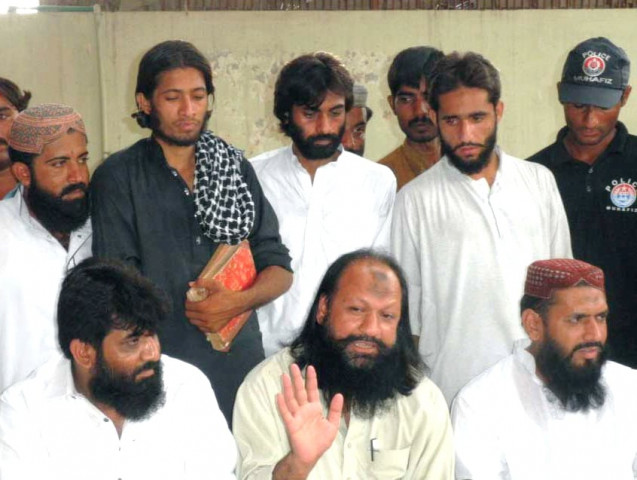Lashkar-e-Jhangvi and the state
Pakistan has been seemingly trying not to fight terrorists attached to al Qaeda for various reasons.

Lashkar-e-Jhangvi and the state
The LeJ is the sectarian face of al Qaeda but its main function is to engage in kidnapping for ransom in all the big cities of Pakistan to fill the fast-depleting coffers of its parent organisation. When the military spokesman of the ISPR tells us that the army has broken the back of al Qaeda, he leaves LeJ out. In one case after the other, the courts have convicted LeJ members for abducting people, especially those who are Ahmadis, but the image of the LeJ somehow never takes the sort of beating it should. After its founder, Malik Ishaq, was let off by the courts and ultimately released from a Lahore prison, a flurry of sectarian deaths followed, in particular two gruesome incidents in Balochistan where dozens of Shia Hazara were targeted and killed. Any outside observer would think that the state of Pakistan seemingly has a level of tolerance for these minions of al Qaeda that should arouse suspicion.
Late prime minister Benazir Bhutto was convinced before her death that attempts would be made on her life by the Musharraf establishment through the LeJ on the basis of the interface it enjoyed with it. A Pakistani journalist who interviewed Ms Bhutto after the Karachi attempt on her life, quoted her thus: “I have come to know after investigations by my own sources that the October 18 bombing was masterminded by some highly-placed officials in the Pakistani security and intelligence establishments who had hired an al Qaeda-linked militant — Maulvi Abdul Rehman Otho alias Abdul Rehman Sindhi — to execute the attack. Three local militants were hired to carry out the attack under the supervision of Abdul Rehman Sindhi, an al Qaeda-linked Lashkar-e-Jhangvi militant from the Dadu district of Sindh”. She ultimately died at the hands of another al Qaeda attachment — the Tehreek-e-Taliban.
There are four factors that force Pakistan to lean on its indoctrinated sense of insecurity to ignore the real danger confronting it from within: 1) lack of writ of the state; 2) presence of foreign terrorists on its soil; 3) affirmation of the ideology of the terrorists by the ideology of the state; and 4) the ‘contamination’ of the establishment from the more stringent doctrines embraced by the terrorists. The indoctrinated sense of insecurity which covers up for the reluctance to fight the terrorists is the textbook designation of India and Israel as enemy states and the latest media-led campaign against America according to which the US backs the other two and intends to snatch Pakistan’s nuclear weapons. Most Pakistanis are aware of the change this conduct of the state is bringing about. They call it the rise of extremism. But any diagnosis of how this has been brought about will not fail to indicate that it is the impunity enjoyed by the terrorists. There is Pakistan’s vast madrassa network to endorse the strict ideology of the terrorists and there is a response from within the state institutions in the shape of ‘penetration’. The world is increasingly worried about this symbiosis of terrorists with the Pakistani state and society, simply because an isolationist state relentlessly points to ‘external’ enemies who are to be fought first.
Published in The Express Tribune, November 15th, 2011.















COMMENTS
Comments are moderated and generally will be posted if they are on-topic and not abusive.
For more information, please see our Comments FAQ